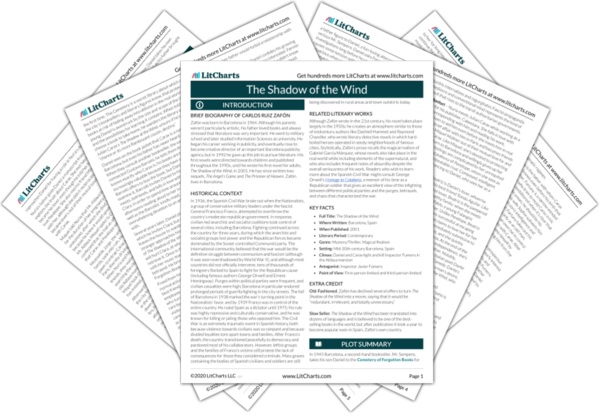AI ToolsNew
Tools to make learning and teaching easier
|
Previous
Days of Ashes: Chapter 5
|
The Shadow of the Wind: Days of Ashes: Chapter 6 Summary & Analysis |
Next
An Empty Plate: Chapter 7
|


Upgrade to unlock the analysis and theme tracking for all of The Shadow of the WindThe Shadow of the Wind!
Get LitCharts A+